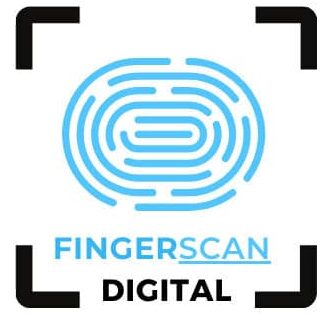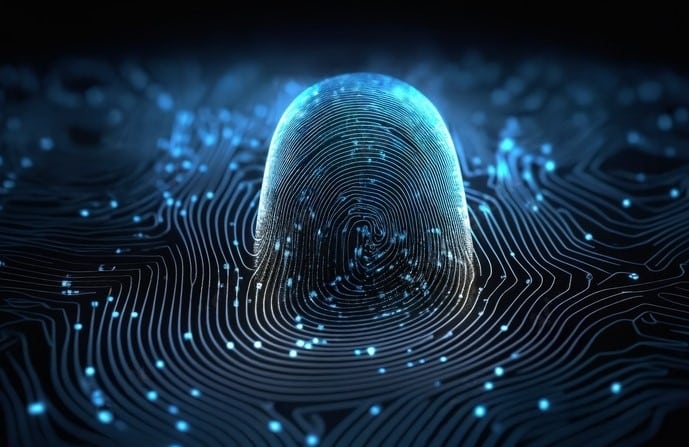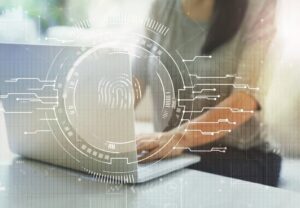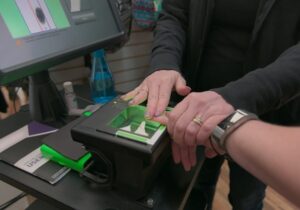What is live scan?
Do you want to know the answer to that? also known as live fingerprinting or electronic fingerprinting, is a modern fingerprinting technology used for capturing and transmitting fingerprints electronically. It is commonly employed for background checks, identification, and criminal record checks by various organizations and government agencies.
Instead of using traditional ink-and-paper methods to obtain fingerprints, Live Scan utilizes a specialized scanner to capture an individual’s fingerprints directly in digital format. The scanned fingerprints are then transmitted securely to the relevant authorities, such as law enforcement agencies, state or federal background check centers, or other organizations that require fingerprint-based checks.
The live scan process offers several advantages over traditional methods:
- 1. Accuracy: Live Scan technology helps reduce errors and inaccuracies in fingerprinting, resulting in better identification and matching.
- 2. Speed: Electronic transmission of fingerprints allows for faster processing and retrieval of results compared to manual processing.
- 3. Convenience: Live Scan eliminates the need for messy ink and paper, making the process cleaner and more user-friendly.
- 4. Security: The digital transmission of fingerprints ensures the secure and confidential handling of personal information.
Live Scan is widely used for various purposes, including employment background checks, volunteer screening, licensing applications (e.g., for healthcare professionals and teachers), and criminal history background checks for individuals seeking immigration benefits or international travel clearances.
It’s important to note that the availability and usage of Live Scan technology may vary depending on the country, state, or specific requirements of the organization or agency involved.
Why do I need a live scan?
Live Scan is utilized for several reasons due to its advantages over traditional ink-and-paper fingerprinting methods. Here are some of the primary reasons why a live scan is needed:
- 1. Precision: Live Scan technology offers higher accuracy in capturing fingerprints compared to manual methods. This improved accuracy ensures more reliable identification and reduces the chances of false matches or errors.
- 2. Speed: The electronic transmission of fingerprints allows for faster processing and retrieval of results. This is particularly crucial for time-sensitive situations, such as background checks for employment or licensing applications.
- 3. Efficiency: Live Scan eliminates the need for manual processing and mailing of inked fingerprint cards, streamlining the overall fingerprinting process. This efficiency benefits both the individuals being fingerprinted and the agencies performing the checks.
- 4. Cleanliness: Unlike traditional ink and paper fingerprinting, Live Scan does not involve messy ink, making it a cleaner and more comfortable experience for the individual being fingerprinted.
- 5. Digital Records: Live Scan creates digital records of fingerprints, which can be stored and easily retrieved for future use. This allows for faster and more convenient resubmission of fingerprints if required.
- 6. Security: The electronic transmission of fingerprints ensures a more secure and confidential handling of personal information. Digital records are less susceptible to tampering or loss compared to physical inked fingerprint cards.
- 7. Compliance: Some government agencies and organizations may require Live Scan for compliance with specific regulations or standards. It may be a mandatory requirement for certain types of employment, licensing, or immigration-related processes.
- 8. Integration with Databases: Live Scan systems are often integrated with databases containing criminal history records, which allows for immediate comparison and identification of individuals with existing records.
Overall, Live Scan provides a more advanced and efficient method for capturing and processing fingerprints, making it a preferred choice for background checks, identification, and record-keeping purposes. Its benefits in accuracy, speed, and security contribute to its widespread adoption in various sectors, including law enforcement, healthcare, education, and government agencies.
How does a live scan work?
Live Scan works by electronically capturing fingerprints using a specialized scanner and transmitting the digital images to appropriate databases or authorities. Here’s a step-by-step explanation of how Live Scan technology operates:
- 1. Preparation: The individual being fingerprinted will need to provide valid identification documents, such as a driver’s license, passport, or government-issued ID, to verify their identity. The Live Scan operator will also ensure that the required information is accurately filled out on the application form.
- 2. Fingerprint Capture: The individual places their fingers one at a time on a glass plate or surface of the Live Scan scanner. The scanner uses optical or capacitive technology to capture the ridge patterns and details of the fingerprints.
- 3. Image Processing: Once the fingerprints are scanned, the Live Scan system processes the captured images. It checks for quality and clarity, ensuring that the images are suitable for identification purposes.
- 4. Data Entry: The Live Scan operator will enter additional information into the system, such as the individual’s details, the purpose of the fingerprinting (e.g., employment, licensing, background check), and any relevant reference numbers.
- 5. Data Transmission: The scanned fingerprint images and associated data are securely transmitted electronically to the appropriate recipient or agency. This may include law enforcement databases, state or federal background check centers, or other organizations requiring fingerprint information.
- Comparison and Identification: At the receiving end, the transmitted fingerprint data is compared against existing databases of known criminal records or applicant records. The system looks for potential matches and provides identification results.
- 7. Results and Reporting: The results of the Live Scan process are sent back to the requesting agency or organization. Depending on the purpose of the fingerprinting, the results may be used for employment screening, licensing decisions, criminal history checks, or other relevant determinations.
- 8. Record Storage: Digital fingerprint records are typically stored in secure databases for future reference and retrieval. This allows for easy resubmission of fingerprints if required and helps maintain accurate records.
- 9. This is good for everyone!
Live Scan FAQ
- What are the benefits of Live Scan? Live Scan offers several advantages over traditional ink-and-paper fingerprinting:
- Faster processing: Digital transmission eliminates the need to physically mail or deliver fingerprint cards.
- Accuracy: The digital process reduces errors caused by smudging or poor-quality ink impressions.
- Convenience: Applicants do not need to handle messy ink and can quickly complete the process.
- Record keeping: Digital images can be stored electronically for future reference.
- Who uses Live Scan? Live Scan is used by various organizations and agencies, including law enforcement, employers, licensing boards, and government agencies, for conducting background checks, employment screenings, security clearances, and more.
- What is the procedure for getting Live Scan fingerprints? To get Live Scan fingerprints:
- Visit an authorized Live Scan location.
- Present required identification and documentation.
- Place your fingers on the scanner’s glass surface for fingerprint capture.
- Review the captured image for quality.
- The scanned data is sent to the appropriate agency for processing.
- Is Live Scan used only for fingerprints? While fingerprints are the primary use of Live Scan technology, some systems can also capture palm prints and other biometric data if needed.
- Is Live Scan secure? Yes, Live Scan transmission is secure. The captured fingerprint images are encrypted and transmitted electronically to authorized agencies through secure networks, reducing the risk of data breaches.
- How long does it take to process Live Scan results? Processing times vary depending on the agency and purpose. Some background checks may be completed within a few days, while others might take several weeks.
- Can I challenge the results of a Live Scan background check? Yes, if you believe there is an error in your Live Scan background check results, you can typically initiate a process to challenge or correct the information with the appropriate agency.
- Can I use Live Scan for international purposes? Live Scan is primarily used within the jurisdiction of the country that offers the service. International requirements and regulations may differ, so it’s recommended to inquire with local authorities about fingerprinting procedures for international purposes.
- Is Live Scan the same as facial recognition? No, Live Scan involves capturing fingerprints, while facial recognition technology focuses on analyzing facial features for identification.
- Can I request my own Live Scan for personal reasons? In many cases, Live Scan is conducted by authorized agencies for specific purposes like background checks or licensing. It may not be readily available for personal use, but you can inquire with local law enforcement or private fingerprinting providers for more information.
Remember that this FAQ provides general information about Live Scan technology. Procedures and regulations might vary depending on your jurisdiction and the purpose for which you need the fingerprints.
The entire Live Scan process is designed to be efficient, accurate, and secure. It reduces the processing time compared to traditional ink-and-paper fingerprinting methods and provides a more reliable means of identification for various applications, including background checks and criminal history screening. You can find more details about live scan
Read more of our blogs about live scan




